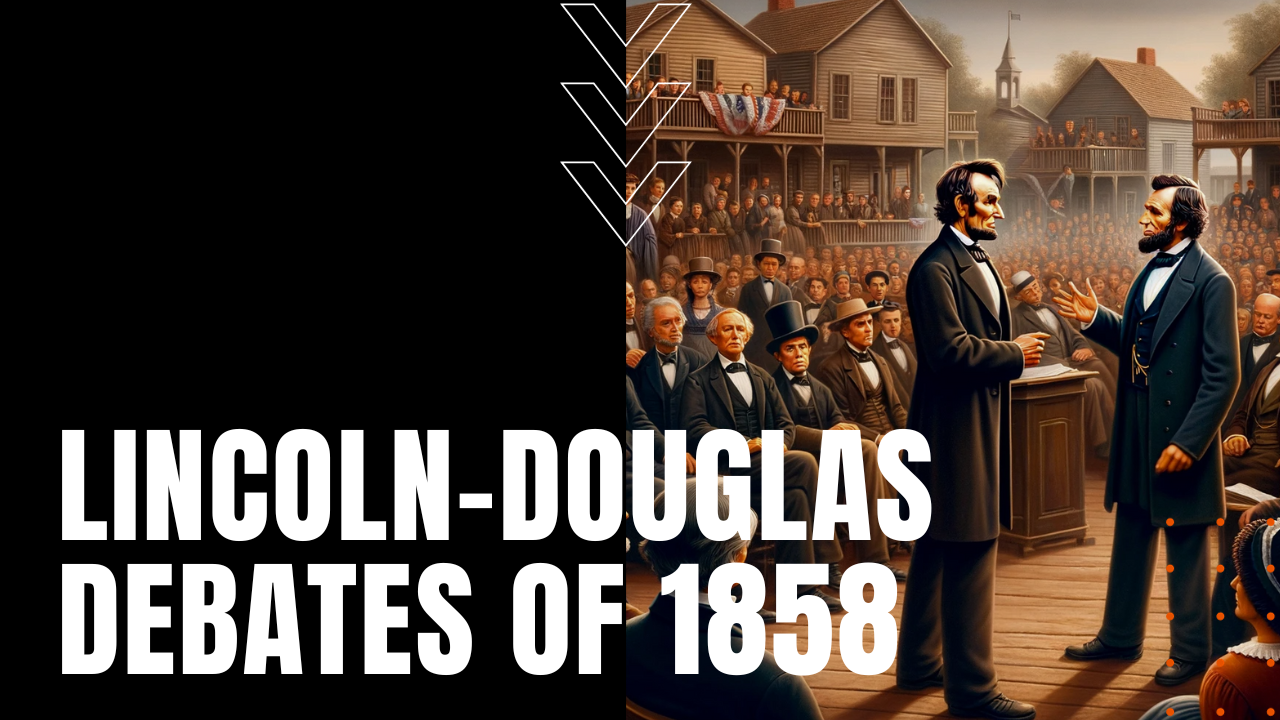The Lincoln Douglas Debates of 1858

During the summer and Fall of 1858, a series of seven debates in Illinois cities between U.S. senate incumbent Stephen A. Douglas and Abraham Lincoln, of the newly-formed Republican Party, drew national attention as they faced off over the evermore contentious debate regarding slavery in America. Aside from their stark physical differences—Lincoln was tall, rail thin and disheveled, while Douglas was short, stocky and expensively dressed—the two candidates traveled more than 4,000 miles during their respective campaigns—Lincoln by rail, carriage and boat, while Douglas traveled aboard a private train fitted with a cannon that fired upon his arrival into a new town.
Attracting Thousands
Attracting as many as 20,000 people per debate, from their first meeting in Ottawa, Douglas accused Lincoln of running on a radical “Black Republican” antislavery platform closely linked to abolitionist Frederick Douglass, while Douglas backed the Jacksonian Democrats’ stance that the issue of free versus slave status was a state by state decision. Lincoln, on the other hand, maintained that only the federal government had the power to abolish slavery. “Why should Illinois be at war with Missouri,” Douglas asked, “or Kentucky with Ohio, or Virginia with New York, merely because their institutions differ?
Union Ending Potential
I believe that this new doctrine preached by Mr. Lincoln and his party will dissolve the Union if it succeeds.” While Lincoln expressed his personal belief that whites were superior to Blacks, he based his anti-slavery stand on moral grounds only, stating that there was “no reason in the world why the negro is not entitled to all the natural rights enumerated in the Declaration of Independence, the right to life, liberty and the pursuit of happiness.”
A Key Question
During their second debate at Freeport Illinois, Lincoln asked Douglas whether or not his popular sovereignty platform allowed settlers to deny slavery from a territory before it gained statehood, and when Douglas answered in the affirmative, his stance, now known as the Freeport Doctrine, alienated many Southerners, which led to his defeat in the presidential election of 1860. For his part, while Lincoln ultimately lost his bid for the senate, his eloquent speeches and moral reasoning during the debates gave him wide national exposure in the American press, leading to his successful bid for the White House in 1860, making the Lincoln-Douglas debates of 1858, a defining moment before a nation went to war with itself.
